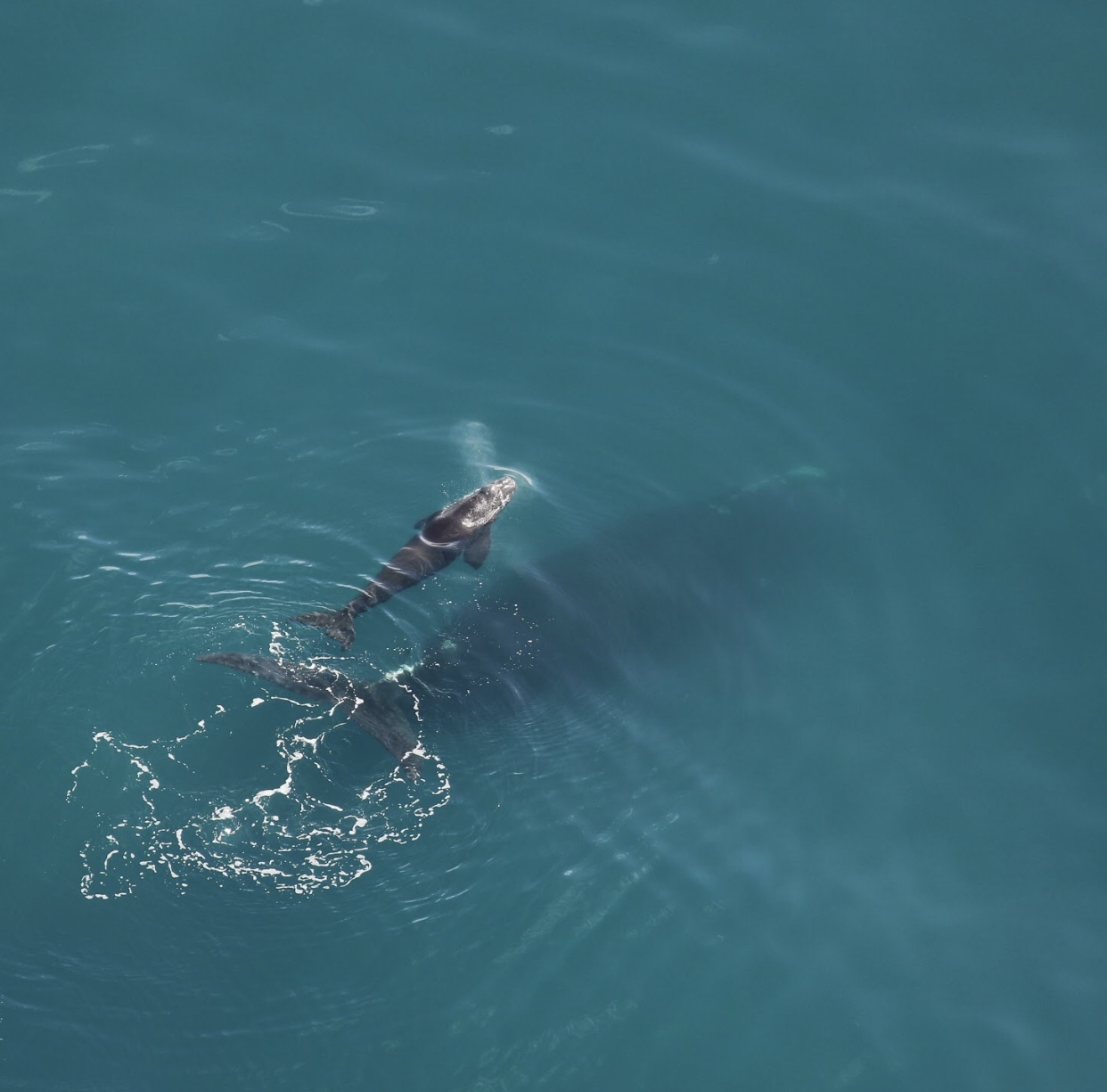First Right Whale Calf Of The Season Spotted Near Sapelo Island

A team from the Clearwater Marine Aquarium in Florida saw the new calf swimming with its mother near Sapelo Island earlier this week. Photos taken under NOAA Permit #20556-01.
Clearwater Marine Aquarium
Researchers have spotted their first North Atlantic right whale calf of the season. The endangered whales give birth off the coast of Georgia and North Florida in the winter, but the past few years have been terrible for the whales, because more adult whales have been found dead than calves have been born.
A team from the Clearwater Marine Aquarium in Florida saw the new calf swimming with its mother near Sapelo Island earlier this week, while conducting a survey for the whales from a plane.
“It was a beautiful day, and there they were,” said Melanie White, North Atlantic right whale conservation project manager for Clearwater Marine Aquarium Research Institute. “It’s encouraging to know they’re out there.”
Related: Right Whales ‘Whisper’ To Their Calves
About 400 of the whales are left. According to the Georgia Department of Natural Resources, 30 whales have been found dead since 2016, many of those killed after being hit by ships or getting tangled in fishing gear off the coast of Canada and New England.
Researchers have only found about a dozen calves in the same time period. In the winter of 2017-18, they didn’t see any calves. Climate change could be contributing to lower birth rates because the mother whales have trouble finding enough food. Scientists say the tiny crustaceans the whales eat have shifted farther north.
For the population of whales to begin to rebound, White said, it would be good to see 20 or more calves a season.
“Unfortunately, one isn’t going to save the species, but it’s something, and we’re hoping to continue to build off of that,” she said.
There are fewer than 100 breeding females of the species left. In a news release, Clay George, a biologist with the Georgia DNR, said the whales could be “functionally extinct by the end of this century.”
The mother whales typically stay off the coast of Georgia and North Florida through the winter, then head back up to their northern feeding grounds in the spring.








